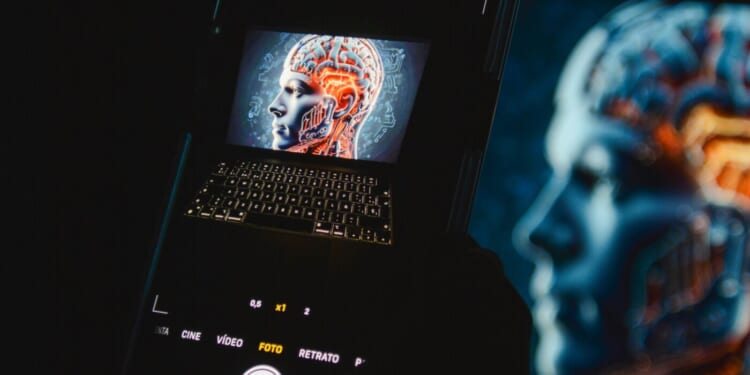When I start a new school year, I like to ask a select few of my students (those who don’t make the “best” decisions) the following question:
Are you smart?
They inevitably say, “Yes,” because, well, we all want to be considered smart.
Then I give them the second question:
Do smart people care about themselves and others?
They have to think harder on this one. They almost always respond “yes,” because I am their teacher, and they are 11-year-olds who are smart enough to know that I’d want them to respond in the affirmative.
So I push them some more with another question:
Was Hitler smart?
By now, they’ve figured out my game. Like a match of tic-tac-toe where the only box left is the one you’ll win on, they understand that “being smart” must include a moral dimension.
If not, intelligence is destructive, which isn’t smart at all.
The Intelligence of AI
Let’s go deeper:
Is artificial intelligence smart?
Many would argue that it is morally neutral, neither good nor bad. Others believe it to be the first sign of the apocalypse (or the 144th, depending on where you get your research from). Still others think it is the savior of the world, a masterpiece of human engineering that will cure cancer, feed the hungry, and halt climate change.
Before we attempt to answer the question, let’s do something rather absurd in today’s “emote before we think” world and define our terms:
What is an algorithm?
Famed tech critic and computer science professor at Georgetown, Cal Newport, recently explored this topic in his podcast episode “Decoding Tik Tok’s Algorithm.” To summarize his explanation, an algorithm isn’t a human-controlled editor that sifts through myriads of pieces of content and supplies you with what you want to see in your social media feeds. An algorithm is a sophisticated AI that takes information you put into your online experience (i.e., in your profile, preferences, and activity) and matches those things to content that is uploaded ad nauseam on a daily basis. Sure, a human being presses “enter” on the algorithmic experience, but the machine does all the work to keep you addicted to your device.
Is there a human in charge of AI? This is important because only humans can be smart—only humans can care about themselves and others.
Algorithms cannot do this. They can only do what they are told, which are two things: 1) dig into the soul of the user to exploit that which is most addicting in us (vice), and 2) keep us addicted to the hyper-reality of the digital environment.
Show of hands: How many of us have been told by our loved ones to turn off our screen to complete a chore, have dinner with the family, pray, or play? How many of us became instantly depressed that we had to turn off our screen, as if a severe injustice had befallen us?
This is the mantra of today’s world: “Don’t infringe upon my hyper-reality, for your actual reality is boring and difficult.” This is why so many of us are depressed. It doesn’t matter which generation we are a part of; we’ve all experienced the sweetness of the digital donut that we have learned to treat the recipes of reality as disgusting, unpalatable.
The Cost of Hyper-Reality
The result? We have less and less of the good things in life.
What does hyper-reality promise? An algorithm that will capitalize on the dark parts of your mind, the vices of the seven deadly sins. It is a “nothing continent” where nothing nourishes, nothing satisfies. It is anti-reality, an invisible place where you sit alone as king or queen with man-made algorithms curated to every unreal part about you. It makes you your own god, isolating you from the very things that make you happy. Thus, algorithmic content can be considered a precursor to hell.
The Alternative: Reality
What’s the alternative?
What does reality promise?
Pain.
But pain that is worth suffering to achieve true happiness.
Much of life is boring. Much of life is hard to endure. But there’s joy in the struggle, too.
Think about an athlete who loves the sport they play so much that even practice is enjoyable. Think about a musician who fails time and time again learning to play a piece but nails it on performance night. Think about a service-learning trip that you reluctantly went on, but, after helping those less fortunate, you felt a pinch (or an overwhelming sense) of pride for having served. Think about a nurse taking care of a dying veteran; a police officer saving the life of a woman in a car crash; a CEO who donates the necessary funding to build an orphanage in a third-world country.
Reality offers us human contact, and thus direct contact with God who told us “whatsoever you did for the least of my brothers, that you did for me” (Mt. 25:40).
To love is to sacrifice for the good of another. Machines cannot do this; only humans can.
AI is not smart.
“Smart” devices are not smart.
No machine is capable of having emotions, filtering them through their intellect, and willing the good of another. They can only exploit these powers of the soul and weaken them, click by click.
A truly Catholic use of technology is based on the human fulcrum that we give it, namely, morality, the intellectual superpower that builds the common good.
We are at a tipping point in society where technology is advancing faster than our brains are capable of focusing on both reality and hyper-reality at scale. Will we advance our strength through the practice of real-life virtues while using AI, and by extension all present and future forms of technological advancements? Or will ethics become absent from algorithms like they are now, making us numb to the only reality we have, the only common good we have, the only communion with God that we have—the one that promises us peace on both this side of heaven and for eternity?
In other words, are we smarter than AI?
St. Paul did not write, “I have finished the doomscrolling and gotten to the bottom of my eternal feed,” but “I have finished the race.” He “touched grass” in order to earn a crown of thorns which, when he crossed the finish line into eternal life, became a halo.
So be smart—choose reality.
Otherwise, we let amoral intelligence (AI) win…
And that’s dangerous.
Photo by Aidin Geranrekab on Unsplash










